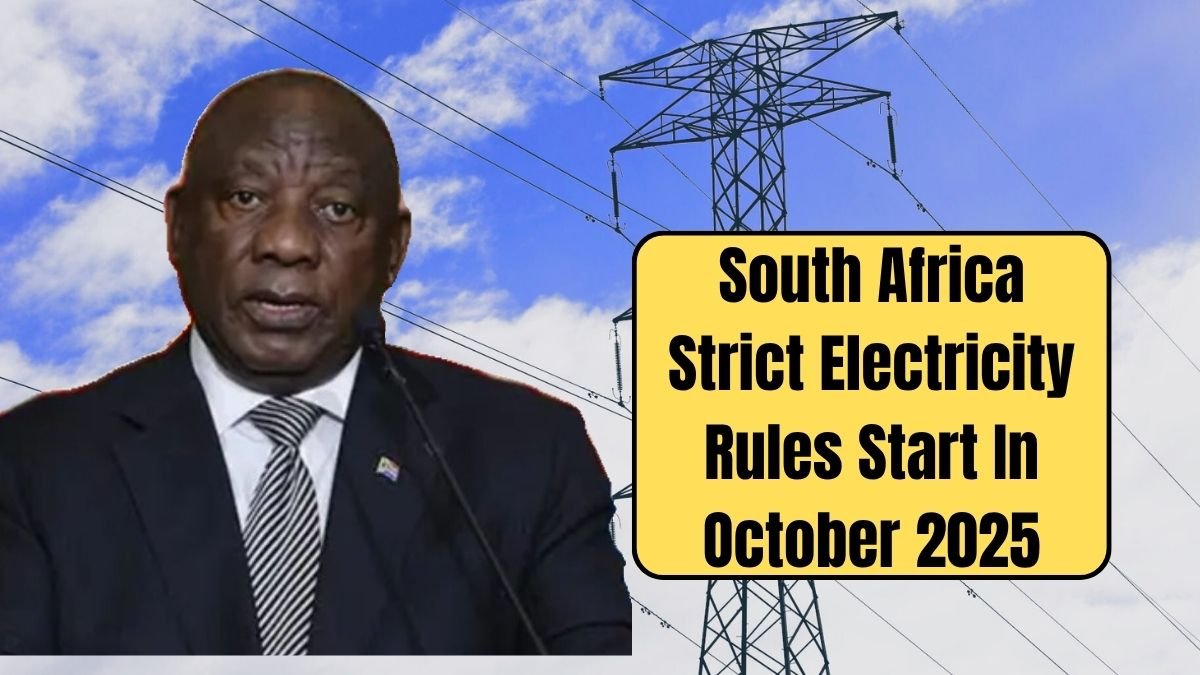As from October 2025, South Africans daily have to face strands of consequence due to the newly recreated set of electricity regulations, and the countering of these constitute offenses according to South African Government Regulations. Therefore, in maintaining the harmonized national grid set-up, avoiding peak-hour requirements, and assembling a load management program for the summer, the government gets the leverage through these rules.On the contrary, critics predict that these measures will overlook the welfare needs of the people and will create a great deal of resentment.
Why Have These New Electricity Regulations been Brought About?
Eskom and NERSA state that these electricity regulations are going to limit electricity consumption by households during peak periods, with a view to promoting energy efficiency.However, the country’s energy supply remains fragile despite the very early assurances given by government of security of power generation. They warn that load shedding shall be seen again if users are not put through strict control before December. The measures will also steer Eskom away from years of mismanagement and the increasing fuel costs and maintenance backlog.
What the New Rules Mean for the Households
According to the new regulation-for household and business consumption-from 6 a.m. to 9 a.m. and from 5 p.m. to 9 p.m.-With the key changes being:
- An inflexible cut-off of power during peak hours for nonessential users of electricity.
- The new regulation also provides for penal and surcharge clauses should usage exceed a certain monthly quantity.
- Limit the uses of heavy appliances, for example, pool pumps, pool heaters, and air conditioners, during demand hours.
- Allow promotion of smart meters which shall be able to disable such consumption automatically.
- A local municipality may propose the charging of higher tariffs or temporary cuts in supply from the side of dis-compliant households.
And Businesses Too Had Been Targeted
Primarily, energy-saving requirements had been imposed upon commercial consumers, mainly manufacturers and retailers. Those factories and major business shall reduce their electricity consumption by up to 10 percent during peak times or else be subjected to further punishments; retailers shall be encouraged for further deployment of LED lighting, fractionally-sized solar backing systems, and time-based controls. The apprehension among small business operators is that the new act might.
The Government Assurance to the Public
- Ramokgopa defended the measure from being thrown out by saying that these stringent generation rules are temporary in nature as part of the greater national recovery plan.
- “No, these are not measures meant to punish consumers,” he stated. “They rather keep power supply reliable and stable for the high demand summer season.”
- On a government level, an incentive and a rebate were promised to the household that decides to curtail consumption or go renewables, i.e., solar panels.
Public Reaction and Promising Path Forward
The announcement created polarizing reactions. In so much that a large number of South Africans were venting their disbelief and anger at the stricter measures via social media while others doubted that these steps would be sufficient to prevent Stage 5 from being utilized even further.With energy experts believing that very hard months lie ahead, the policy has in fact been held among those capable of lifting up to 8% of the national energy if properly followed.
also read : South Africa To Shift From 65: Updated Retirement Age & Pension Rules 2025
